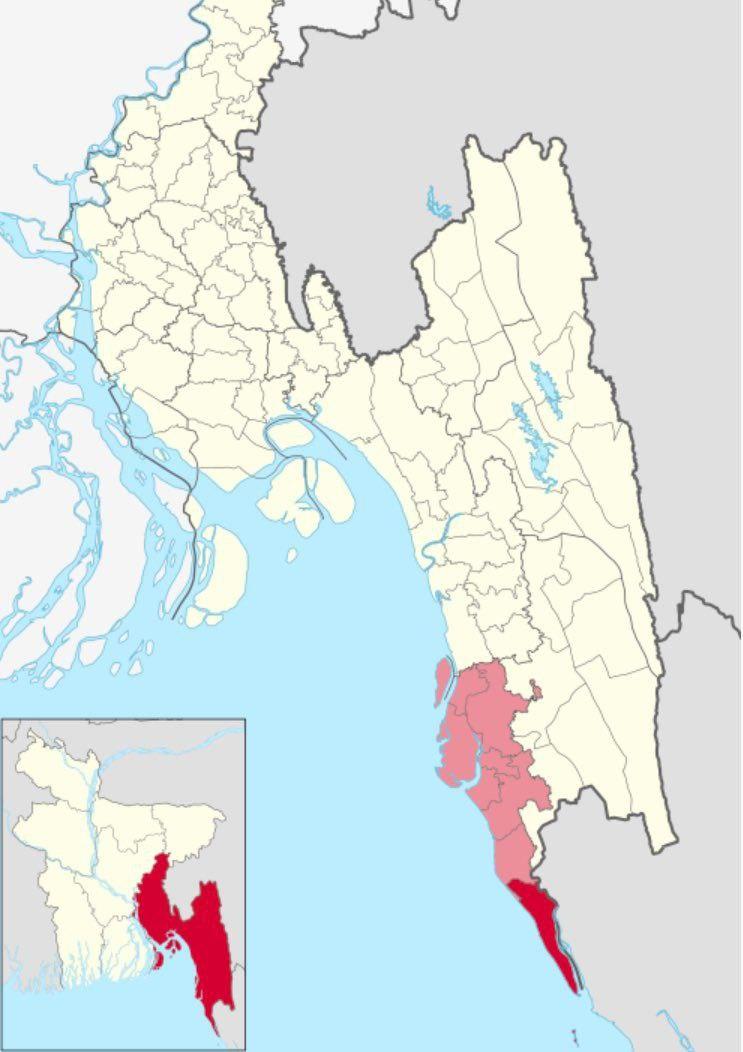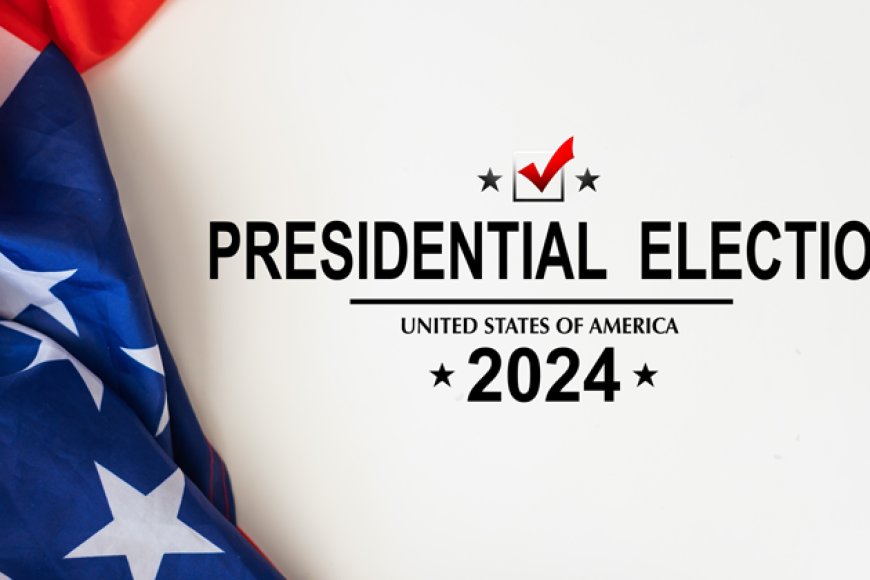This article explains why Donald Trump may win the 2024 U.S. presidential election and why Kamala Harris may lose. Trump has a strong Republican base, popular appeal, and solid economic policies, making him a potential winner. His stance on law and order also resonates with many voters. On the other hand, Kamala Harris faces challenges such as low popularity, lack of experience, and her close association with the Biden administration. These factors may benefit Trump and make it difficult for Harris to win the 2024 election.
Why Donald Trump May Win the 2024 U.S. Election:
Strong Republican Base: Trump has maintained a loyal and energized base that remains highly engaged in politics. His supporters are consistently motivated to vote, attend rallies, and donate to his campaigns.
Economic Message: Trump's economic policies, including tax cuts and deregulation, have been popular with business owners, corporations, and working-class voters. He may benefit from voters who believe he can restore economic growth, particularly after the challenges of inflation and the COVID-19 recovery period.
Populist Appeal: Trump’s populist message continues to resonate with a large segment of the American electorate, particularly those who feel left behind by globalization and the political establishment. His "America First" stance on trade and immigration has strong support in rural and industrial areas.
Anti-Establishment Sentiment: Many voters view Trump as a political outsider who challenges the "deep state" or the political elite. This image appeals to those who are frustrated with career politicians and seek a more unconventional leader.
Media Dominance: Trump’s ability to dominate media coverage, both on traditional platforms and social media, ensures that he stays in the spotlight. His controversial statements often bring attention that fuels his campaign and keeps him at the forefront of political discussions.
Perceived Strength on Law and Order: Trump’s stance on law and order, including his criticism of movements like “Defund the Police,” appeals to voters who are concerned about crime rates and public safety. This position resonates especially in suburban and rural communities.
Conservative Supreme Court Influence: Trump successfully appointed three conservative justices to the Supreme Court, which has earned him significant support from conservative voters, especially those concerned about issues like abortion, gun rights, and religious freedom.
Immigration Policy: Trump's hard-line immigration policies, including the border wall and opposition to illegal immigration, remain popular with voters who are concerned about border security and the impact of immigration on jobs and wages.
Opposition to Political Correctness: Trump’s unapologetic style and rejection of "political correctness" appeal to many voters who feel that free speech is under attack. His rhetoric resonates with individuals who believe that traditional American values are being eroded by progressive movements.
Frustration with Biden’s Administration: If voters are dissatisfied with the economy, inflation, foreign policy (e.g., handling of the Afghanistan withdrawal), or other aspects of the Biden administration’s performance, they may turn to Trump as an alternative leader who promises change and a return to stability.
Why Kamala Harris May Lose the 2024 U.S. Election:
Low Approval Ratings: Kamala Harris has faced low approval ratings throughout her tenure as vice president. This lack of popularity could undermine her ability to energize the Democratic base and attract independent voters.
Lack of Clear Achievements: Critics argue that Harris has not achieved significant policy successes as vice president, which could make it difficult for her to campaign on a record of accomplishments.
Perception of Inexperience: Harris has relatively little experience in executive leadership compared to other candidates, and her performance in handling key issues like the border crisis has been questioned. Some voters may see her as unprepared for the presidency.
Association with Biden's Struggles: As vice president, Harris is closely tied to the successes and failures of the Biden administration. Any dissatisfaction with the Biden administration, whether over economic issues, foreign policy, or handling of the pandemic, could negatively affect her chances.
Difficulty Mobilizing the Democratic Base: Harris may struggle to unify the Democratic Party’s diverse factions, including progressives and moderates. A lack of enthusiasm from key voting blocs, such as younger voters or minority groups, could hurt her chances.
Weak Support Among Independents: While Harris has strong support among Democratic loyalists, her appeal among independent and swing voters is weaker. This group is critical to winning national elections, and without their backing, her path to victory becomes narrower.
Republican Attack Strategy: Harris is likely to face strong and well-funded attacks from Republican opponents, who may focus on her record as a prosecutor or her stances on hot-button issues like immigration, law enforcement, and taxes. These attacks could damage her reputation among undecided voters.
Polarizing Identity Politics: While Harris's background as the first female vice president of African-American and South Asian descent has historic significance, some critics may argue that identity politics could alienate certain voters who prioritize policy over representation.
Weak Foreign Policy Credentials: Harris has limited experience in foreign policy, and given the global challenges facing the U.S., this could be a point of vulnerability. Her performance on the international stage may be scrutinized more heavily in a presidential election.
Handling of the Border Crisis: Harris was tasked with addressing the root causes of migration, but her perceived lack of progress on border control and immigration reform has drawn criticism from both sides of the political aisle. This issue could be used effectively against her in the campaign.
In conclusion, Trump may benefit from a strong base, economic messaging, and anti-establishment appeal, while Harris could face challenges related to low approval ratings and association with the Biden administration's struggles. Both candidates will need to address these strengths and weaknesses as the 2024 election approaches.
#2024USElectionPredictions
#WhyTrumpMayWin2024Election
#KamalaHarrisElectionChallenges
#DonaldTrump2024VictoryReasons
#KamalaHarris2024ElectionIssues
#TrumpPopulistAppeal2024
#BidenHarrisAdministrationCritique
#USElectionAnalysis2024
#TrumpVsHarris2024Election
#ReasonsForTrumpsPotential2024WinThis article explains why Donald Trump may win the 2024 U.S. presidential election and why Kamala Harris may lose. Trump has a strong Republican base, popular appeal, and solid economic policies, making him a potential winner. His stance on law and order also resonates with many voters. On the other hand, Kamala Harris faces challenges such as low popularity, lack of experience, and her close association with the Biden administration. These factors may benefit Trump and make it difficult for Harris to win the 2024 election.
Why Donald Trump May Win the 2024 U.S. Election:
Strong Republican Base: Trump has maintained a loyal and energized base that remains highly engaged in politics. His supporters are consistently motivated to vote, attend rallies, and donate to his campaigns.
Economic Message: Trump's economic policies, including tax cuts and deregulation, have been popular with business owners, corporations, and working-class voters. He may benefit from voters who believe he can restore economic growth, particularly after the challenges of inflation and the COVID-19 recovery period.
Populist Appeal: Trump’s populist message continues to resonate with a large segment of the American electorate, particularly those who feel left behind by globalization and the political establishment. His "America First" stance on trade and immigration has strong support in rural and industrial areas.
Anti-Establishment Sentiment: Many voters view Trump as a political outsider who challenges the "deep state" or the political elite. This image appeals to those who are frustrated with career politicians and seek a more unconventional leader.
Media Dominance: Trump’s ability to dominate media coverage, both on traditional platforms and social media, ensures that he stays in the spotlight. His controversial statements often bring attention that fuels his campaign and keeps him at the forefront of political discussions.
Perceived Strength on Law and Order: Trump’s stance on law and order, including his criticism of movements like “Defund the Police,” appeals to voters who are concerned about crime rates and public safety. This position resonates especially in suburban and rural communities.
Conservative Supreme Court Influence: Trump successfully appointed three conservative justices to the Supreme Court, which has earned him significant support from conservative voters, especially those concerned about issues like abortion, gun rights, and religious freedom.
Immigration Policy: Trump's hard-line immigration policies, including the border wall and opposition to illegal immigration, remain popular with voters who are concerned about border security and the impact of immigration on jobs and wages.
Opposition to Political Correctness: Trump’s unapologetic style and rejection of "political correctness" appeal to many voters who feel that free speech is under attack. His rhetoric resonates with individuals who believe that traditional American values are being eroded by progressive movements.
Frustration with Biden’s Administration: If voters are dissatisfied with the economy, inflation, foreign policy (e.g., handling of the Afghanistan withdrawal), or other aspects of the Biden administration’s performance, they may turn to Trump as an alternative leader who promises change and a return to stability.
Why Kamala Harris May Lose the 2024 U.S. Election:
Low Approval Ratings: Kamala Harris has faced low approval ratings throughout her tenure as vice president. This lack of popularity could undermine her ability to energize the Democratic base and attract independent voters.
Lack of Clear Achievements: Critics argue that Harris has not achieved significant policy successes as vice president, which could make it difficult for her to campaign on a record of accomplishments.
Perception of Inexperience: Harris has relatively little experience in executive leadership compared to other candidates, and her performance in handling key issues like the border crisis has been questioned. Some voters may see her as unprepared for the presidency.
Association with Biden's Struggles: As vice president, Harris is closely tied to the successes and failures of the Biden administration. Any dissatisfaction with the Biden administration, whether over economic issues, foreign policy, or handling of the pandemic, could negatively affect her chances.
Difficulty Mobilizing the Democratic Base: Harris may struggle to unify the Democratic Party’s diverse factions, including progressives and moderates. A lack of enthusiasm from key voting blocs, such as younger voters or minority groups, could hurt her chances.
Weak Support Among Independents: While Harris has strong support among Democratic loyalists, her appeal among independent and swing voters is weaker. This group is critical to winning national elections, and without their backing, her path to victory becomes narrower.
Republican Attack Strategy: Harris is likely to face strong and well-funded attacks from Republican opponents, who may focus on her record as a prosecutor or her stances on hot-button issues like immigration, law enforcement, and taxes. These attacks could damage her reputation among undecided voters.
Polarizing Identity Politics: While Harris's background as the first female vice president of African-American and South Asian descent has historic significance, some critics may argue that identity politics could alienate certain voters who prioritize policy over representation.
Weak Foreign Policy Credentials: Harris has limited experience in foreign policy, and given the global challenges facing the U.S., this could be a point of vulnerability. Her performance on the international stage may be scrutinized more heavily in a presidential election.
Handling of the Border Crisis: Harris was tasked with addressing the root causes of migration, but her perceived lack of progress on border control and immigration reform has drawn criticism from both sides of the political aisle. This issue could be used effectively against her in the campaign.
In conclusion, Trump may benefit from a strong base, economic messaging, and anti-establishment appeal, while Harris could face challenges related to low approval ratings and association with the Biden administration's struggles. Both candidates will need to address these strengths and weaknesses as the 2024 election approaches.
#2024USElectionPredictions
#WhyTrumpMayWin2024Election
#KamalaHarrisElectionChallenges
#DonaldTrump2024VictoryReasons
#KamalaHarris2024ElectionIssues
#TrumpPopulistAppeal2024
#BidenHarrisAdministrationCritique
#USElectionAnalysis2024
#TrumpVsHarris2024Election
#ReasonsForTrumpsPotential2024Win









